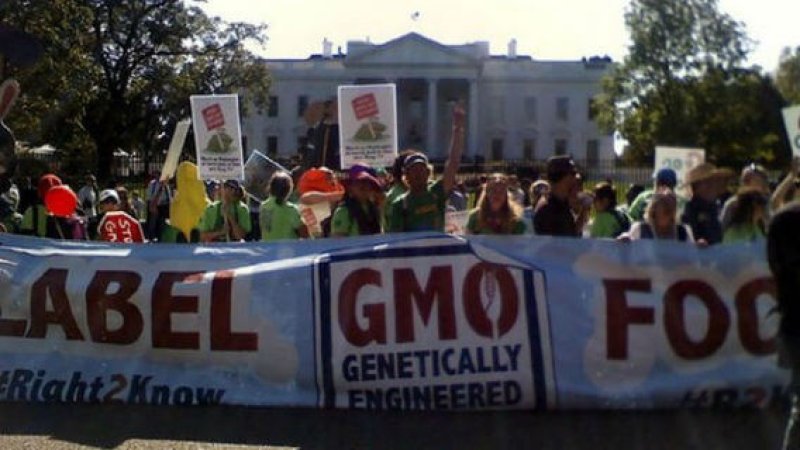David Ropeik, former director of the Harvard Center for Risk Analysis and one of the country’s foremost experts on risk, has written an open letter to “CEOs of BigAgTech” companies, urging them to change their stance on labeling GMOs, although he did not endorse I-522 in Washington.
Agricultural corporations are fighting the wrong battle, Ropeik wrote. It’s not enough to say that science overwhelmingly supports GM technology—agriculture companies must understand that the labeling fight is more about trust and the psychology of risk. When agricultural companies spend millions of dollars fighting a labeling campaign, the consumer is led to believe that something is being hidden from them, and an already unfamiliar and complex issue like genetic engineering becomes something to fear.
In response to labeling efforts, agriculture companies are put on the defensive, afraid that labeling will kill revenue—and this fear does little for their public image, which is already damaged. This is a psychological trap that Ropeik calls “Fear of Fear.”
The chance that a label like “may contain genetically modified ingredients” could scare away even one end-consumer, has frightened you into opposing such labeling. Your direct customers, the farmers who grow the food and the food companies who sell it, are even more afraid of this consumer fear than you are. The Fear of Fear is common. It seems to make sense. And certainly you and the food production and retail industry are right to some degree. Such labels almost certainly will scare some people away.
But consumers engage in risky activities all the time, Ropeik wrote, so why would consuming genetically modified food be any different? The difference is that people engage in risky activities knowingly. By offering consumers the opportunity to make informed decisions, Monsanto and other agriculture companies could reduce the unsubstantiated fear of GMOs, he argued.
[Labeling] would demonstrate your belief that “It’s safe and we have nothing to hide.” It would acknowledge people’s concerns, respect the public’s feelings. A dramatic and sincere shift to support GMO labeling will demonstrate that you are not being purely defensive and self-interested. It would significantly ease the “We hate GMOs because we hate Monsanto (i.e. Big Ag Tech companies)” mistrust that lies at the heart of this conflict. Not only would it encourage acceptance of GMOs, it might even help ease public mistrust in your company and industry, though that’s a bigger longer battle.
Andrew Revkin, who runs the Dot Earth blog at The New York Times, highlighted Ropeik’s piece and teased out the debate in a follow up column. He said he “tended to agree” with Ropeik, but also understood why industry and many scientists and physicians oppose GMO labeling in general or the Washington initiative in particular—because of “the loopholes, the fact that they wouldn’t provide the public with much useful information in any case and the reality that such campaigns are pretty clearly not just about access to information.”
Revkin also quoted an editorial by Ramez Naam, a technology expert who also supports labeling although believes Washington’s labeling initiative is misguided. If GMOs are listed alongside other approved ingredients, Naam wrote last week, consumers would believe their sense of control is restored.
Revkin also cited the Genetic Literacy Project’s article and infographic posted last week which addressed the anti-GMO motivations behind Washington’s labeling initiative.
Read the full, original story here: “To: CEOs of BigAgTech Re: Labeling of GMOs”
Additional Resources:































